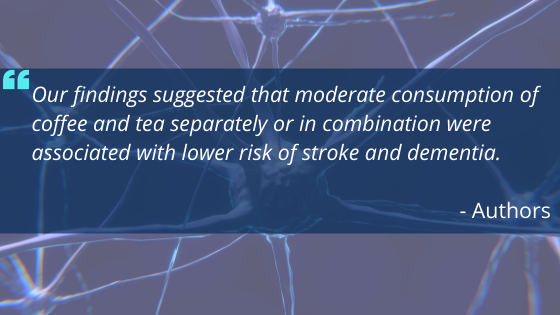Strokes are life-threatening events that cause 10 percent of deaths globally. Dementia is a general term for symptoms related to declining brain function and is a global health concern with a high economic and social burden. Post-stroke dementia is a condition where symptoms of dementia occur after a stroke.
Drinking coffee or tea may be associated with a lower risk of stroke and dementia, according to a study of healthy individuals aged 50-74 published November 16th in the open-access journal PLOS Medicine.

Yuan Zhang and colleagues from Tianjin Medical University, Tianjin, China studied 365,682 participants from the UK Biobank, who were recruited between 2006 and 2010 and followed them until 2020. At the outset participants self-reported their coffee and tea intake. Over the study period, 5,079 participants developed dementia, and 10,053 experienced at least one stroke.
People who drank 2-3 cups of coffee or 3-5 cups of tea per day, or a combination of 4–6 cups of coffee and tea had the lowest incidence of stroke or dementia. Individuals who drank 2-3 cups of coffee and 2-3 cups of tea daily had a 32% lower risk of stroke (HR, 0.68, 95% CI, 0.59-0.79; P <0.001) and a 28% lower risk of dementia (HR, 0.72, 95% CI, 0.59-0.89; P =0.002) compared with those who drank neither coffee nor tea. Intake of coffee alone or in combination with tea was also associated with a lower risk of post-stroke dementia.
Click here to read more.
